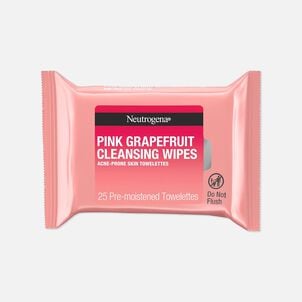Freelancing, taxes and your HSA

At first glance, freelancing can seem like the ideal gig – no boss breathing down your neck, flexible work hours, and the ability to work from any location, from your beach house to your kitchen table to your favorite coffee shop. But with that comes a hefty set of responsibilities, like, say paying your own taxes.
My first year of freelancing, I was hit by a nearly $20,000 tax bill. While I thought I had a good year financially, that tax bill was an unexpected surprise, and not in a good way. At that moment, I vowed never to never let my freelance career become a financial liability again.
Now that you're (hopefully) recovering from tax season, here are our best tips on how to tackle your obligations as a freelancer – and how your HSA can help.
Get familiar with the IRS
Yes, we realize this is a tall order. IRS language can be tricky, and the rules are often confusing. But generally speaking, if you are a freelancer, contractor, or sole proprietor and expect to owe more than $1,000 in taxes that year, you are required to pay quarterly taxes.
Those who don't have to pay quarterly taxes must meet all of the following three conditions: no tax bill last year (either because you didn't owe any taxes or didn't have to file because you earned less than $400), have been a U.S. citizen for the entire year, and your entire tax year covered a 12-month time period.
Let's say you don't meet those requirements and need to file quarterly taxes. How do you calculate how much you'll owe? Unfortunately, it's not an exact science. A good rule of thumb is to set aside 25-30% of your income for taxes.
So, let's say you earn $2,500/month. That adds up to $7,500 quarterly, which means your quarterly tax bill (using the 30% rule) will ring in at about $2,250. Though that $2,250 doesn't sound like a lot at face value, forgo quarterly taxes and you're looking at a $9,000 tax bill next year. Ouch.
(Find out what worksheet you'll need to complete and where to send your quarterly taxes here.)
Still confused? Hire an accountant. Trust us, that extra $500 will be worth it when April 2020 rolls around.
Take advantage of tax breaks
As a freelancer, you are still eligible to use tax-advantaged accounts like an HSA. Personally, I've tried to do the full-time freelance thing with zero childcare. I have to tell you, it's just not realistic.
Let's start with your HSA. Being a full-time freelancer isn't an excuse to scrimp on healthcare. If anything, the unstable nature of the field and irregular income means that health insurance should be a priority. Consider a high-deductible health plan (HDHP), which has a much lower premium than traditional plans. Though, as the name suggests, the deductibles are higher. That's where your HSA comes in.
Transfer an old HSA from your previous employer or open a new one to cover all your bases. That HSA rolls over from year-to-year which means it can also function as a secondary retirement savings account, though you should still find a Roth IRA or traditional IRA as a freelancer. Another bonus? An HSA can reduce your taxable income over the year, which is every freelancer's dream.
Speaking of lowering your taxable income, If you work out of your home, you also may be able to write off some of your work expenses, such as your home office, computer, or mileage. That being said, be sure to do your due diligence with the IRS when writing things off. The last thing you want as a freelancer is to get audited.
Worth noting: just because your income may be unpredictable doesn't mean you should stop contributing to your HSA or other retirement funds. Keeping those funds healthy is even more important when you're self-employed.
Keep impeccable records
The IRS considers freelancers to be business owners. (Did you just get a promotion? Congrats!) However, this means that you should be operating your freelance business as such.
Keep track of all of your income, the amount, date paid, and from which client. Organizing this by month is a good idea. That way, calculating your quarterly taxes will be that much easier. Plus, you'll be able to see at the end of the month any outstanding bills. And as any freelancer knows, collecting payment from clients can often be one of the most challenging parts of the job.
Create a template for earnings and payments made and make sure it lives in an easily accessible place, like Google Drive. And for the love of everything, please don't save an Excel sheet to your desktop, because you may end up accidentally deleting it at some point. You may also consider tracking your time via a free, online tracking tool.
This way, you can see how many hours are billed to each client, or for clients who pay a flat fee, how much you're averaging from an hourly rate perspective.
While freelancing may not be right for those who crave routine or stability, it's an ideal career path for work-from-home moms or those who just can't seem themselves sitting at a desk 40 hours a week. That being said, navigating taxes as a freelancer can be rather taxing. That's why it's important to pay quarterly taxes (or at least plan for a potential tax bill), use tax-advantaged accounts, and to stay organized.
Shop everyday health needs
--
Tax Facts is a column offering straight up, no-nonsense HSA tax tips, written in everyday language. Look for it on Tuesdays, exclusively on the HSAstore.com Learning Center. And for the latest info about your health and financial wellness, be sure to follow us on Facebook and Twitter.


.png)
















